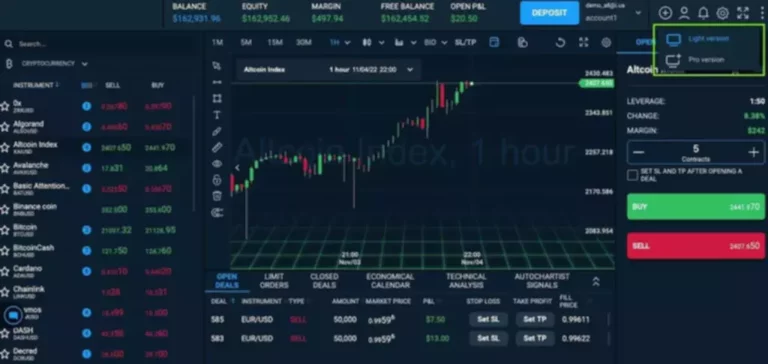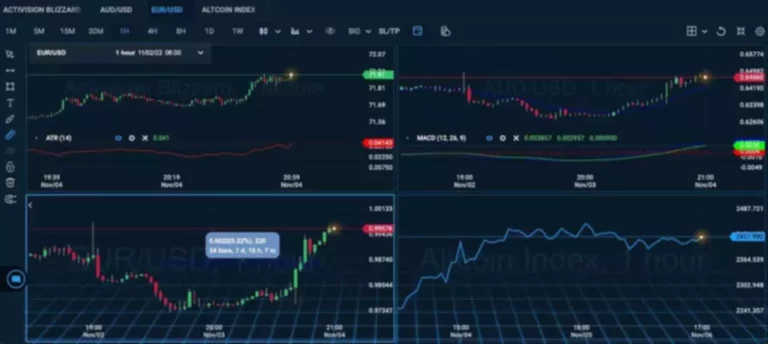The Securities and Exchange Commission (SEC) is the first authority for regulating ATSs in the United States. The SEC establishes guidelines and guidelines for these methods, masking features similar to registration, reporting, and operational standards. The regulatory framework strives to balance innovation with needed oversight, preventing market manipulation and fraud while permitting ATS to supply versatile buying and selling solutions. This oversight fosters trust and confidence amongst market members, contributing to the general health and effectivity of financial markets.
Order Routing, Execution, And Operational Standards
Additionally, ATSs grant entry to diverse liquidity pools, leading to raised pricing and improved execution high quality. The flexibility of ATSs helps progressive trading methods, making them a beautiful choice for firms aiming to optimize their buying and selling operations and obtain favorable monetary outcomes. However, this innovation comes with a complex internet of regulatory challenges that market participants should skillfully navigate. In the fast-paced world of finance, alternative buying and selling methods (ATS) have turn into key players. They supply a new way to commerce, alongside conventional exchanges.

Trends may embrace increased efficiency, transparency, and the convergence of ATS and traditional exchanges. As ATS function globally, they should navigate a complex and various regulatory panorama. Changes in rules or failure to adjust to regulatory requirements can pose important Ethereum dangers.

To Make Sure One Vote Per Person, Please Embrace The Next Info
Dark Pools get their name because they completely hide trades from the public or obscure the size of trades. A commerce might display 1,000 shares when the entire trade is 10,000 shares. This type of trade is known as an iceberg as a end result of it solely shows a small a part of the trade. By not revealing the complete size of the commerce, the market is prone to move less towards the trader. The term various trading system is particular to North America. Europe has an analogous system but calls it a Multilateral Trading Facility (MTF).
Trades executed on an ECN can occur exterior of normal market hours. ECNs do charge commissions, which can negatively influence returns for high-volume merchants. But conventional exchanges are continually upgrading their systems to keep pace. Some ATSs cater to specific kinds of traders or require excessive minimums to participate. Some ATSs operate as “dark pools,” where trades occur in the shadows. Do you could have questions on Alternative Trading Systems regulation?
By aggregating provide and demand from varied sources, ATS can offer improved liquidity, doubtlessly leading to raised execution prices for merchants. Secondly, ATS doesn’t set up rules for the buyers and trading securities, i.e., it’s not self-regulatory. Thirdly, it provides an option for institutional investors to buy or promote in giant portions. Lastly, traders can trade on an ATS without disclosing funding size or price https://www.xcritical.com/ information.
Challenges And Limitations Of Ats
- For instance, the SEC publishes the different trading system record month-to-month on its web site.
- Operating an ATS includes addressing challenges requiring strategic compliance and market operations approaches.
- Engaging with regulators and business our bodies permits them to anticipate adjustments and adjust operations accordingly.
- A well-structured compliance program not solely helps in adhering to regulatory requirements but in addition helps the overall well being and competitiveness of the ATS.
- It can also damage the environment friendly price discovery course of, which is key for financial markets to work well.
This is not like a public change, which broadcasts trades to everyone on the trade. They provide value-add to markets via lower charges, technological innovation, and specialised companies tailored to particular buying and selling strategies. Keeping know-how aligned with regulatory standards is an ongoing problem. Operators ought to invest in cutting-edge options like AI for real-time monitoring and blockchain for safe transactions. Collaborating with fintech consultants can offer insights into the most recent tech developments, serving to mitigate risks and streamline compliance processes.
Alternative Trading Systems provide several benefits that make them interesting to traders, particularly these in search of privacy and effectivity. They present anonymity, permitting massive transactions to be executed with out revealing buying and selling intentions, which helps decrease market influence. ATSs are also more versatile than traditional exchanges, supporting innovative buying and selling strategies as a result of fewer regulatory constraints.
It isn’t guaranteed as to accuracy, does not purport to be full and is not meant to be used as a primary basis for investment decisions. It also wants to alternative trading systems not be construed as advice assembly the actual funding wants of any investor. ATSs typically have the edge right here, thanks to their technology and streamlined processes. The relaxed regulatory environment permits ATSs to be extra nimble and innovative. This is because they’re not certain by the identical rules, so they can experiment with different charge constructions and pricing models. This allows for greater flexibility in operation and less stringent disclosure requirements.
Also, just lately the SEC has been taking many measures to make the ATS more transparent, following heavy criticism. For example, the SEC publishes the alternative trading system list monthly on its website. Further, it has mandated that the ATS should report information and other related info. A hedge fund interested in building a large position in a company may use an ATS to stop other investors from shopping for in advance. ATSs used for these purposes may be referred to as dark swimming pools. Adam Hayes, Ph.D., CFA, is a monetary author with 15+ years Wall Street expertise as a derivatives trader.
SEC Regulation ATS, while within the European Union, they are ruled by MiFID II. Other global markets have their very own regulatory frameworks for ATS. Using an ATS provides a quantity of advantages, together with increased liquidity, lower prices, anonymity and discretion, and prolonged trading hours. Given their reliance on technology, ATS are prone to operational risks, together with system failures, programming errors, and cyber threats. Broker-dealers use ATS to offer their clients with access to further liquidity and potential price enhancements.

